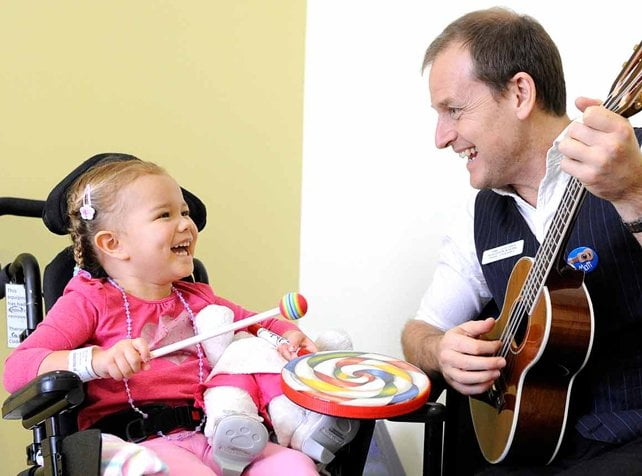Music
Therapy is a healthcare profession that uses music to address a wide range of
physical, emotional, cognitive, and social needs of individuals. Trained and certified music therapists use music and its elements – such as rhythm, melody, harmony, and lyrics – to help clients improve their well-being and achieve therapeutic goals. Here are some key aspects of music therapy:
Clinical and Evidence-Based: Music therapy is a clinical and evidence-based practice. Music therapists assess the needs of their clients and design therapeutic interventions accordingly.
Goals and Objectives: Music therapists work with clients to establish specific goals and objectives. These goals could be related to physical rehabilitation, emotional expression, cognitive stimulation, or social interaction.
Diverse Populations: Music therapy can benefit people of all ages and abilities, including children with developmental disorders, individuals with mental health issues, and seniors with Alzheimer’s disease.
Goals and Objectives: Music therapists work with clients to establish specific goals and objectives. These goals could be related to physical rehabilitation, emotional expression, cognitive stimulation, or social interaction.
Techniques and Approaches: Music therapy interventions may involve activities such as playing instruments, singing, songwriting, listening to music, and movement to music. The choice of technique depends on the client’s needs and preferences.
Individualized Treatment: Music therapy is highly individualized. Therapists tailor their approach to the unique needs and preferences of each client, taking into account their musical needs, tastes and abilities.
Therapeutic Benefits: Music therapy can have various therapeutic benefits, including emotional expression, stress reduction, pain management, increased motivation, improved cognitive function, enhanced communication, and social interaction.
Professional Training: Music therapists are trained professionals who typically hold a bachelor’s or master’s degree in music therapy. They also undergo clinical internships and pass a certificate exam.
Settings: Music therapy can be provided in a variety of settings, including hospitals, rehabilitation centres, schools, nursing homes, mental health facilities, and private practices.
Research and Assessment: Music therapists use assessment tools and ongoing evaluation to measure progress and adjust treatment plans accordingly. Research in the field continually informs best practices.
